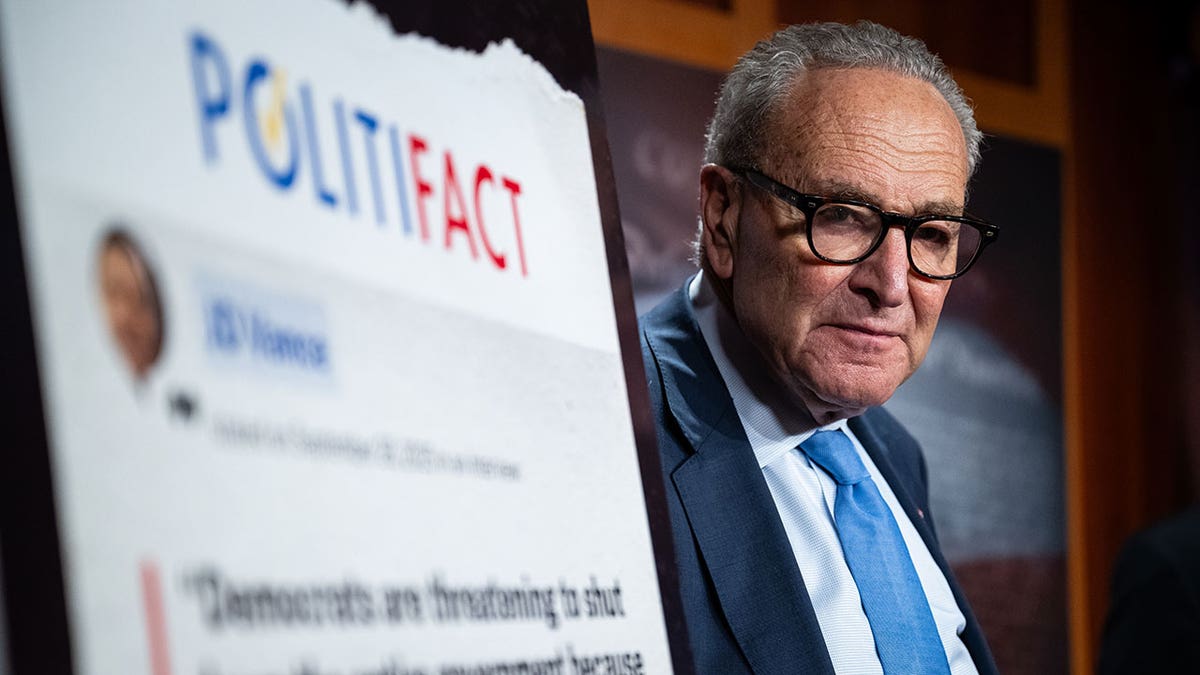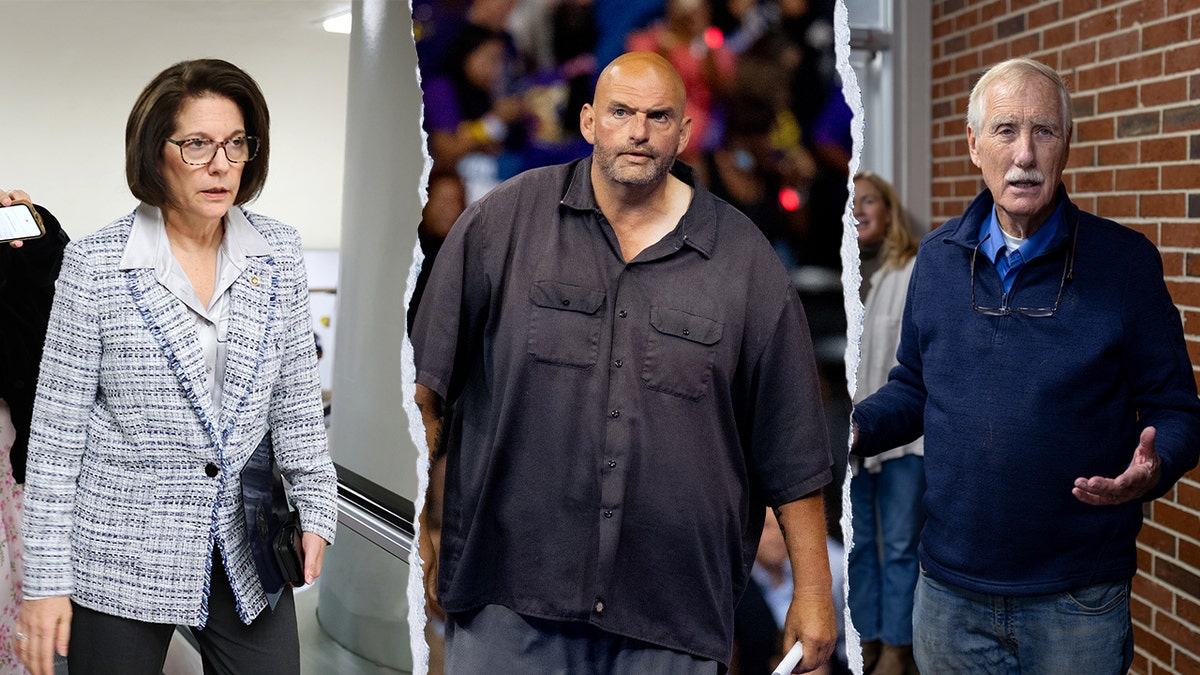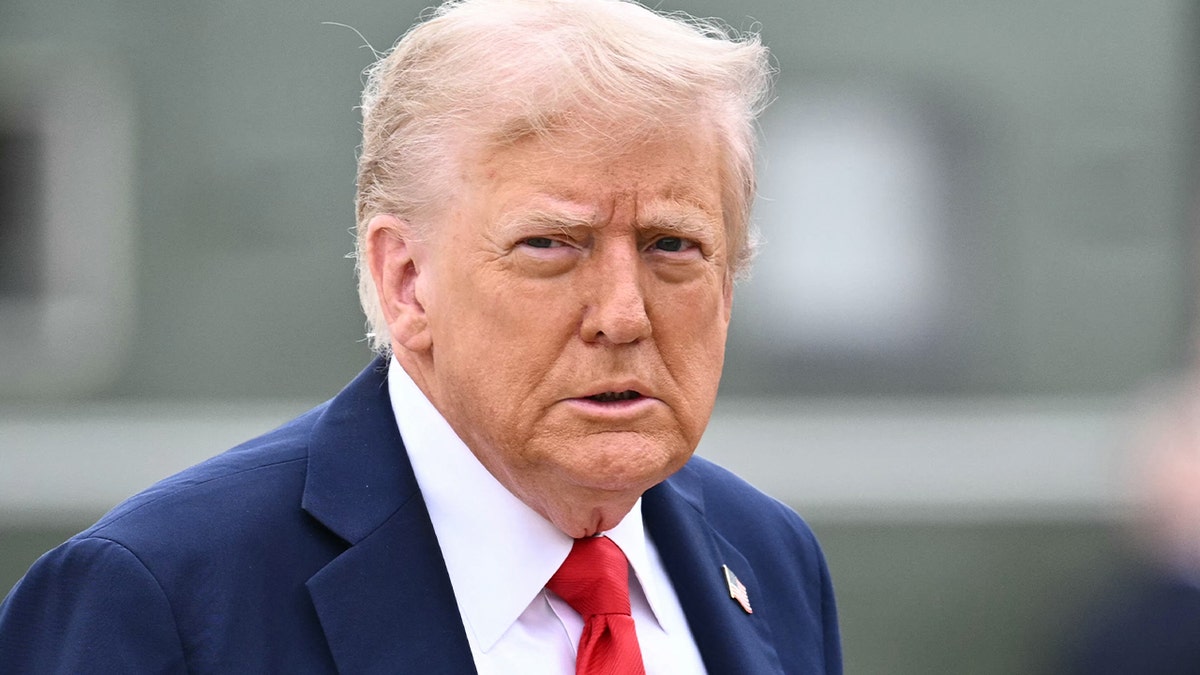

The Senate remains deadlocked on a path to end the shutdown as it nears its second week, and Republicans’ meager support across the aisle to reopen the government may be crumbling.
Senate Majority Leader John Thune, R-S.D., needs at least eight Senate Democratic caucus members to join Republicans to reopen the government, given that Sen. Rand Paul, R-Ky., has consistently voted against the GOP’s bill.
So far, a trio of Democratic caucus members, Sens. John Fetterman, D-Pa., Catherine Cortez Masto, D-Nev., and Angus King, I-Maine, have crossed the aisle to reopen the government.
SCHUMER'S SHUTDOWN HOLDS AS SENATE DEMS BLOCK GOP BID TO REOPEN GOVERNMENT

Senate Minority Leader Chuck Schumer, a Democrat from New York, during a news conference at the U.S. Capitol in Washington on Oct. 3, 2025. (Graeme Sloan/Bloomberg via Getty Images)
That group has joined Republicans in nearly all five attempts to reopen the government.
But, as time drags on and a deal remains out of reach, at least one is considering changing his vote.
King said ahead of the fifth vote to reopen the government on Monday that he was considering flipping his support of the GOP’s bill, and he argued that he needed "more specificity about addressing the problem" of the expiring Obamacare tax credits.
"I think this problem is urgent, and just saying, as the leader did on Friday, ‘well, we'll have conversations about it,’ is not adequate," he said.
King’s possible defection comes as Republicans and Democrats engage in low-level conversations on a path out of the shutdown. Those impromptu dialogues have so far not morphed into real negotiations, however.
SCHUMER'S SHUTDOWN SCHEME EXPLAINED: DEMS DOUBLE DOWN ON OBAMACARE CREDITS AS STANDOFF DRAGS ON

Three senators who all caucus with the Democratic Party bucked their party by supporting a Republican-led appropriations package that Democrats refused to agree to, leading to a federal government shutdown. (Getty Images)
And the stalemate in the upper chamber has only further solidified both sides’ positions.
Senate Democrats, led by Senate Minority Leader Chuck Schumer, D-N.Y., want a firm deal in place to extend expiring Obamacare subsidies. Senate Republicans have said that they will negotiate a deal only after the government is reopened and want reforms to the program that they charge has been inflationary and further increased the cost of healthcare for Americans.
Sen. Susan Collins, R-Maine, has circulated an early plan that includes a discussion of the Affordable Care Act (ACA) subsidies that could be a way out of the shutdown, but so far, it's in its preliminary stages.
"It suggests that there be a conversation on the ACA extension for the premium tax credits after we reopen the government," she said. "But there will be a commitment to having that discussion."
President Donald Trump signaled on Monday that he would be open to a deal on the subsidies, and he said that negotiations with Democrats were ongoing.
GOVERNMENT SHUTDOWN DRAGS INTO WEEKEND AS SENATE DEMOCRATS BLOCK GOP PLAN

President Donald Trump makes his way to board Air Force One before departing from Joint Base Andrews in Maryland on Sept. 21, 2025. (Mandel Ngan/AFP)
However, Schumer pushed back and called Trump’s assertion "not true." The top Senate Democrat has also shifted the onus of the shutdown, and lack of negotiations, directly onto House Speaker Mike Johnson, R-La.
"Clearly, at this point, he is the main obstacle," Schumer said on the Senate floor. "So ending this shutdown will require Donald Trump to step in and push Speaker Johnson to negotiate."
Meanwhile, the White House is exerting more pressure on Senate Democrats to cave and reopen the government. A new memo reported by Axios suggested that furloughed federal employees may not have to receive back pay, running counter to a law that Trump signed in 2019 that guaranteed furloughed workers would receive back pay in future shutdowns.
That comes on the heels of a memo from the Office of Management and Budget last month that signaled mass firings beyond the typical furloughs of nonessential federal workers, and it follows the withholding of nearly $30 billion in federal funds for blue cities and states.
Thune argued that "if you're the executive branch of the government, you've got to manage a shutdown."
"At some point, you're going to have to make some decisions about who gets paid, who doesn't get paid, which agencies and departments get priorities and prioritized and which ones don't," Thune said. "I mean, I think that's a fairly standard practice in the event of a government shutdown. Now, hopefully that doesn't affect back pay … but again, it's just that simple: open up the government."
